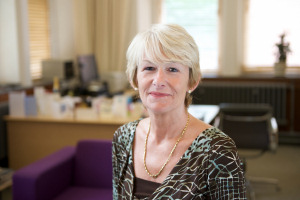Professor Dame Nancy Rothwell appointed to Council for Science and Technology
29 Jun 2011
The Prime Minister has appointed 11 new members to the Council for Science and Technology (CST), including the President and Vice-Chancellor of The University of Manchester, Professor Dame Nancy Rothwell.

The CST is the UK Government’s top-level advisory body on science and technology policy issues. It reports directly to the Prime Minister.
Prime Minister David Cameron said: “It will be our scientists, researchers, engineers and entrepreneurs who will prove crucial in driving growth and creating the jobs and opportunities for the future. That is why despite some tough spending decisions we have protected our funding for science and focused on being the most pro-business, pro-growth government there has been.
“We have some of the worlds best scientists, leading technologies, cutting edge facilities and the most innovative hi-tech companies, and it is our determination that we do all that we can to ensure the UK remains one of the world leaders in this field.
“That is why I am delighted that I can announce the appointment of such a high calibre team, with such a broad range of experience to the Council for Science and Technology.”
Earlier this year the PM re-appointed Professor Dame Janet Finch CBE, Professor of Sociology at The University of Manchester, as independent co-chair of CST (to 31 December 2011), alongside the Government's Chief Scientific Advisor, Professor Sir John Beddington.
CST’s terms of reference are:
To advise the Prime Minister on the strategic policies and framework for:
- sustaining and developing science, engineering technology and mathematics (STEM) in the UK, and promoting international co-operation in STEM;
- fostering the practice and perception of science, engineering and technology as an integral part of the culture of the UK;
- promoting excellence in STEM education;
- making more effective use of research and scientific advice in the development and delivery of policy and public services across Government; and,
- promoting STEM-based innovation in business and the public services to promote the sustainable development of the UK economy, the health and quality of life of UK citizens, and global sustainable development.
The Council will work on cross-cutting issues of strategic importance, taking a medium to longer term approach. In developing its advice it will take into account the cultural, economic, environmental, ethical and social context of developments in STEM.
